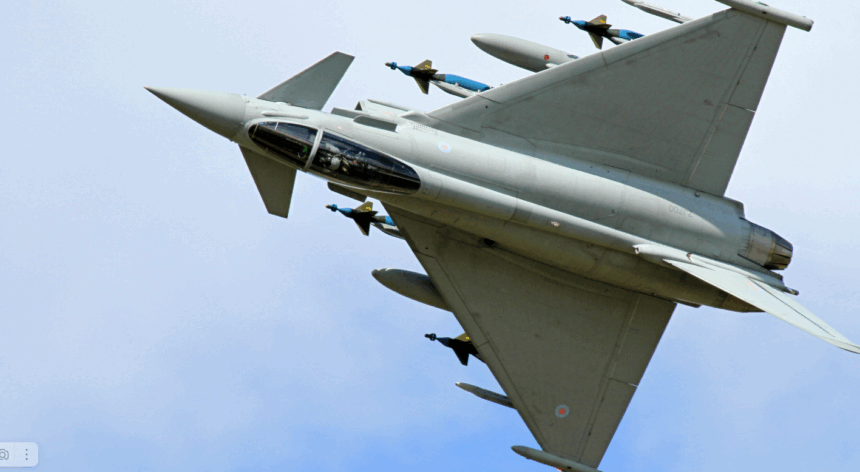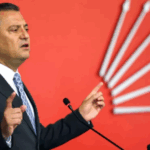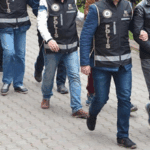Germany’s new federal government led by Chancellor Friedrich Merz is preparing to approve the long-delayed sale of Eurofighter Typhoon jets to Turkey, signaling a significant shift in Berlin’s arms export policy and paving the way for renewed defense cooperation between Turkey and its NATO allies.
According to the German business daily Handelsblatt, officials in both the German government and the defense industry have confirmed that the proposed export of 40 Eurofighter jets to Turkey may soon be authorized. The move would mark a departure from the stance of the previous SPD-Greens-FDP coalition, which had blocked the sale over political concerns, including Turkey’s domestic policies and regional military activities.
The Eurofighter Typhoon, developed by a four-nation consortium comprising Germany, the United Kingdom, Italy, and Spain, requires unanimous approval from all partner nations for any third-party sale. Turkey submitted its formal request earlier this year amid efforts to modernize its aging fighter fleet following its exclusion from the U.S.-led F-35 program.
NATO Summit Spurs Diplomatic Momentum
The potential breakthrough follows a meeting between Turkish President Recep Tayyip Erdoğan and Chancellor Merz on the sidelines of the recent NATO Leaders’ Summit in The Hague. Erdoğan described the discussions with both German and British leaders as “constructive,” saying, “There are positive developments on this matter. Once these developments are fully realized, we will take our steps.”
Erdoğan’s remarks suggest that the Eurofighter deal is gaining political traction after years of delay. The meeting with Merz — part of a broader realignment of European-Turkish defense ties — appears to have played a key role in moving the process forward.
Industrial Stakes and Airbus Concerns
The proposed sale is of particular importance to Airbus Defense and Space, headquartered in Manching, Germany, which is responsible for around 20 percent of the Eurofighter’s core components. For Airbus, securing export orders is critical to maintaining production capacity and supporting system upgrades for the multirole combat aircraft, which has so far recorded more than 600 deliveries worldwide.
Airbus executives have repeatedly called for a more flexible arms export framework in Germany, especially when dealing with allied nations. CEO Michael Schöllhorn has publicly criticized the country’s restrictive export policy, warning that it hampers competitiveness and risks weakening Europe’s defense-industrial base in comparison to the United States.
While Germany, Spain, and Italy are considering additional domestic orders for the Eurofighter, these are unlikely to generate the scale needed to sustain the production line over the long term. In contrast, the American-made F-35 — Turkey’s original choice before being ejected from the program over its S-400 missile purchase from Russia — has secured over 3,000 orders globally.
Geopolitical Realignment
Turkey’s exclusion from the F-35 program in 2019 led Ankara to diversify its defense partnerships. The Eurofighter sale is now seen by European officials as a potential avenue to re-integrate Turkey into Western defense supply chains and strengthen NATO’s southern flank amid rising regional instability.
A senior defense official speaking to Handelsblatt stated that the sale would not only meet Turkey’s air force requirements but also serve as a diplomatic bridge, rebuilding trust between Ankara and key European capitals.
The potential deal also comes as NATO pushes for closer integration of its members’ defense industries. A NATO spokesperson welcomed Germany’s initiative to clarify and harmonize arms export regulations across Europe, noting that intergovernmental agreements — similar to those already in place between Germany and France — could help avoid future bottlenecks in multinational projects.
Political Context
Chancellor Merz’s Christian Democratic Union-led government has signaled a more pragmatic approach to foreign and security policy. The new coalition agreement refers to Turkey as a “key NATO ally” and underscores the importance of “revitalizing bilateral ties” and expanding cooperation on shared security concerns.
While formal export approval from Italy, Spain, and the UK is still required, political signals from both Berlin and Ankara indicate that consensus may be within reach. If finalized, the Eurofighter sale would represent the most significant defense deal between Turkey and European powers in over a decade — and could help shape a new era of strategic collaboration within NATO.



